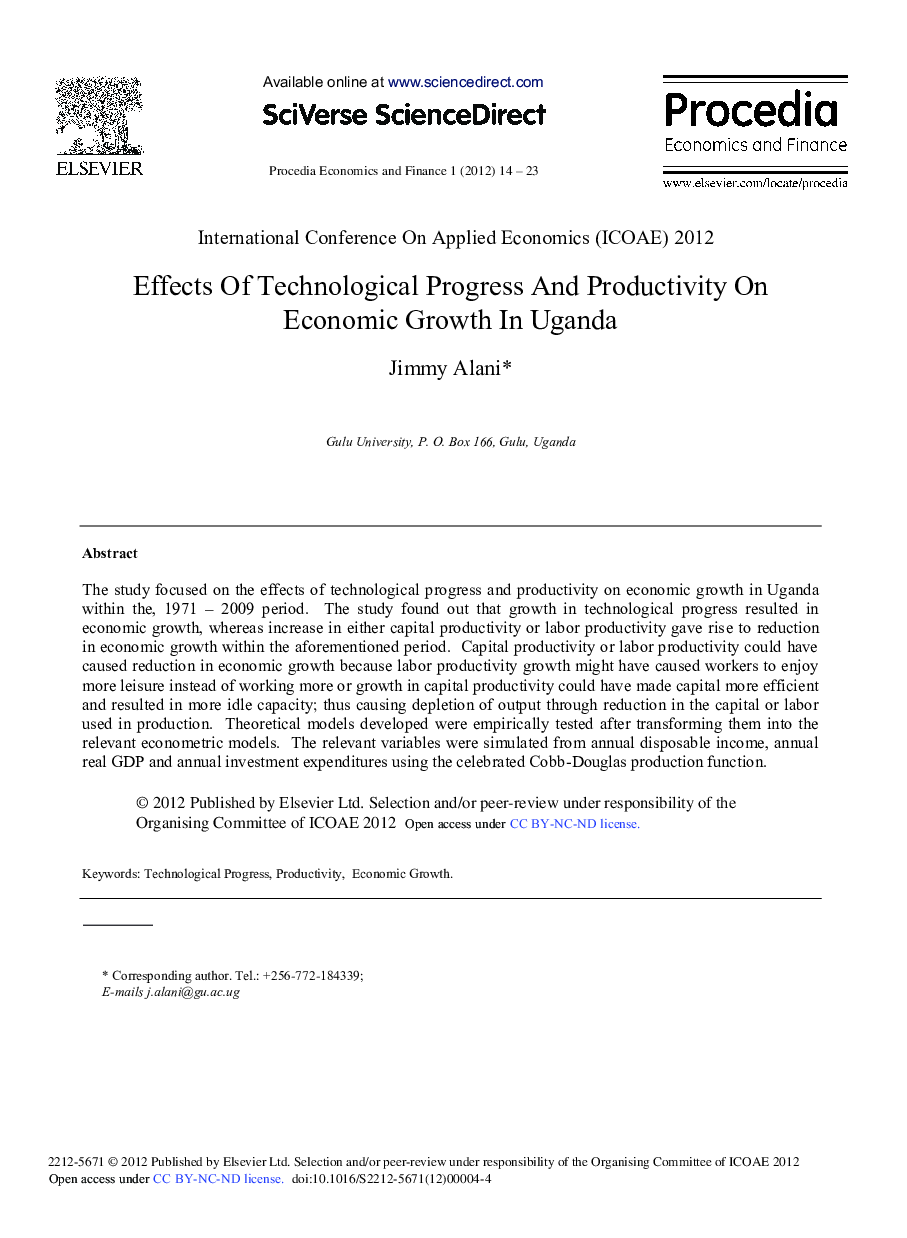| Article ID | Journal | Published Year | Pages | File Type |
|---|---|---|---|---|
| 980289 | Procedia Economics and Finance | 2012 | 10 Pages |
The study focused on the effects of technological progress and productivity on economic growth in Uganda within the, 1971 – 2009 period. The study found out that growth in technological progress resulted in economic growth, whereas increase in either capital productivity or labor productivity gave rise to reduction in economic growth within the aforementioned period. Capital productivity or labor productivity could have caused reduction in economic growth because labor productivity growth might have caused workers to enjoy more leisure instead of working more or growth in capital productivity could have made capital more efficient and resulted in more idle capacity; thus causing depletion of output through reduction in the capital or labor used in production. Theoretical models developed were empirically tested after transforming them into the relevant econometric models. The relevant variables were simulated from annual disposable income, annual real GDP and annual investment expenditures using the celebrated Cobb-Douglas production function.
